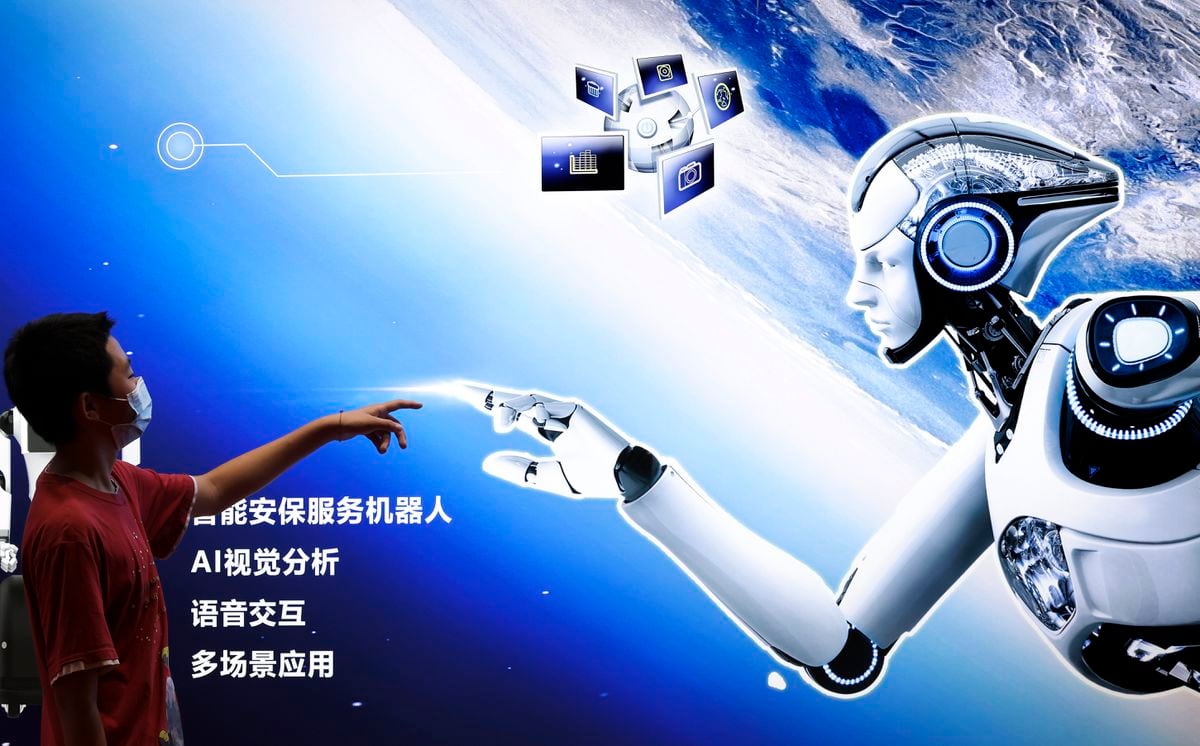[This text is an excerpt from the book Living Nanotechnology, by Sonia Contera, professor of physics at Oxford. An earlier version of the book was published in 2019 in English, prompting EL PAÍS to interview Contera. After reading that interview, Arpa Editores contacted the author to publish this updated version in Spanish.]
One of the main reasons that drives scientists to commit more deeply to democracy and society is the uneasiness created by the effect of technology in an increasingly unequal world, and also the more or less widespread perception of technology as a source of inequality. As with most activities that generate economic gain and political power, the rewards and benefits of science and technology are very unevenly distributed in our society. Much of the Western narrative of technology has to do with the surprise it produces, the shock to our lives, and the fear of unemployment and human redundancy. This narrative stems from the fact that technology has been used primarily to control and exploit nature. No wonder we foresee that this technology will inevitably be used to make the socially and economically weak unnecessary, or even worse, to turn them into cannon fodder for the dystopian exploitation of human biology itself. Science and technology promise to improve our lives, but they also threaten to eliminate what little control most people have over their use and exploitation. Science is central to the development and structure of society, and must be incorporated into our economic and political processes for what it is, a pillar of the system that must be modulated by democratic processes.
The possibilities that science and technology are giving us will probably make the twenty-first century the best and most exciting time to be alive but only for the few who can benefit from them: the educated, the well-connected, the powerful and the rich. Inequalities in income and access to health and education seriously threaten to derail the fabulous possibilities of our time. The future of the "radical abundance" that laboratory scientists around the world increasingly feel is within reach will not happen if the benefits of technology are not shared more equitably.
Japan, Taiwan and China: A Democratic Lesson from Chips
However, technology is not an external force acting on society. Applications of technology arise from the conditions set and decisions made by scientists, technologists, research funders, regulators, workers, consumers and, ultimately, the exploiters and owners of the means of production. Society can determine the use and fair distribution of the benefits of technology. Robots will produce unemployment if the main goal of their deployment is productivity and income for their owners, but this is not the only possible outcome. They can also serve to make our lives more interesting and fairer (to cite specific cases, perhaps nothing has contributed as much to equality between the sexes as the invention of the washing machine or the production of contraceptives). Scientists are increasingly active in their engagement with society to create not only economic income, but also social and cultural value. Technological change can and should be harmonized by dialogue between what is possible and what is desirable, and scientists should not be excluded from this dialogue.
Science and technology will make the twenty-first century the best and most exciting time to be alive, but only for the few who can benefit.
I would argue that technology and equality can and should feed off each other. We need political creativity for anticipatory and adaptive governance, to ensure that science and technology are used to reduce inequality, rather than become a new source of it. This governance will therefore require science and technology to become a reality.
Sonia Contera, expert in nanotechnology at the University of Oxford.JUAN BARBOSA
From my point of view as a woman, mother, physicist and educator, the vision is clear: the potential is enormous. In the laboratory, the international and multidisciplinary character of our research at the interface of nanotechnology and biology empowers our students of all genders and sexes and of all backgrounds, enhancing their scientific and technological creativity and their social and industrial entrepreneurial spirit. Many applications of new bionanotechnology materials sciences are potentially cheap and easy to implement, and require minimal laboratory infrastructure. With the right framework, new technologies should become global forces for reducing national and global inequalities. We should harness this potential. Nanotechnologists are already striving to democratize scientific tools to produce cheap and easy technology that can reach people around the world, such as the paper-stripped biosensor devices we use in COVID diagnostic tests. These inventions are part of the so-called "frugal design technology": for example, the Raspberry Pi Foundation, born from the University of Cambridge in 2009, created the Raspberry Pi computer, which costs about $ 35 and has sold more than 10 million units. In 2017 the press brought us images of Paperfuge, a centrifuge made of paper by Stanford engineers that costs 20 cents, capable of separating blood into its components using the principle of the pinwheel toy. Another example is the Foldscope, a paper microscope that costs less than a dollar.
Gaining skill in controlling matter naturally brings out the human instinct to produce cheaper, more democratic technology. Contrary to most of the comments we are subjected to by academics and the press, technology itself naturally promotes equality by making production better, cheaper, and more sustainable, and by inspiring scientists to pursue simplicity and practicality. A conscious and active political and economic effort is needed to create and maintain the structures that generate inequality from technology, and not the other way around.
A conscious and active political and economic effort is needed to create and maintain the structures that generate inequality from technology, and not the other way around.
The seeds of technological progress that will be capable of unleashing a global wave of success and business transformation have already been planted. Students are attracted by advances, they see them as an opportunity to disrupt economic systems that do not offer them a promising future. They need to create technology that changes their world for the better, and this doesn't just happen in Boston, Silicon Valley, or Oxford. Technology can be a very practical solution to many local problems, and not only in the developed world; Many citizens of developing countries place their hopes in science, which always attracts the interest of the most disadvantaged, perhaps because of the intrinsic power it has to reveal the depth of natural reality and to change it.
The convergence of science around biology offers great opportunities for development. For example, most Asian countries, which do not have a strong pharmaceutical industry (almost all apart from Japan), appreciate the possibility of developing medical technology that is disruptive to the current status quo. They foresee an opportunity for growth and even global dominance in technologies that will shape the future; this is clearly reflected in research budgets for biophysics, engineering and materials science projects touching biology and medicine in, for example, South Korea, China, Singapore and Taiwan. It is clear that the research I have presented in this book is beginning to influence the global economy and geopolitical strategies.
Doesn't the fear of the developed world and the largely negative vision of technology in the so-called "West" also reflect the fear of the rich and powerful to lose their privileged position in the world, and even the fear of Western societies to fall from their position of cultural and economic dominance? Is it not a kind of perverse and ambivalent game in which people who feel entitled to produce and exploit technology also produce anti-science fears not only to warn against its misuse, but to use fear as a means to facilitate its control? Doesn't this ambivalent position reinforce the current trend in most of the Western world to reduce budgets for education, basic scientific research and collaboration that may threaten the dominance of some of the major industrial players in the technologies of the future?
While it is certainly a good idea to interrogate and regulate technologies such as artificial intelligence, robotics, biology, and nanotechnology, it is also true that for the large corporations that dominate markets, many of the products and applications of new technologies are disruptive, threaten their current models of sustainability and economic growth, and are being developed in places outside their traditional control. These companies have the power to curb research and development that threatens their control by effectively lobbying governments. The media and entertainment industry can divert attention from real power struggles by creating narratives that contribute to the public's feelings of alienation and frustration and turn them against an elitist class of scientists, technologists, and experts. Fear of technology is used as a political and economic weapon as powerful as technology itself.
Living nanotechnology
Publisher: Arpa Editores
Price: 21,90 euros
Pages: 272
You can follow MATERIA on Facebook, Twitter and Instagram, or sign up here to receive our weekly newsletter.
75% discount
Subscribe to continue reading
Read without limits
Read more
I'm already a subscriber







/cloudfront-eu-central-1.images.arcpublishing.com/prisa/LEM52JP6LEADMSIBFMVD2O4ZO4.jpg)
